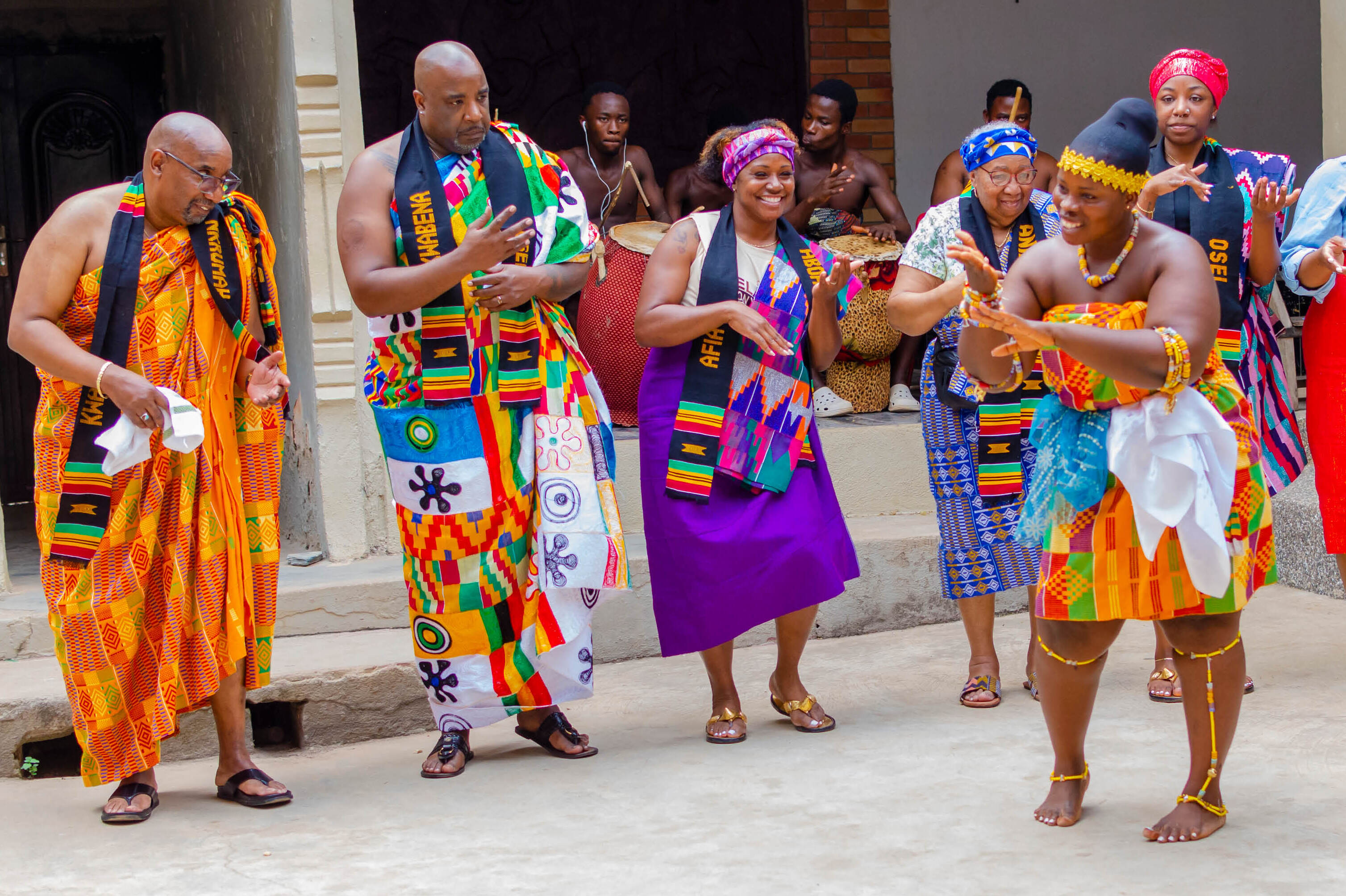The Importance of Naming Ceremony in Ghana
A Traditional Naming Ceremony is included in each of our Ghana Tours. The Naming Ceremony provides tour members with an opportunity to receive their own African Name and participate in a traditional Asante Naming Ceremony.
The Asante are the dominant ethnic group within the Akan clan of Ghana. The Asante Empire of the 19th Century was one of the most powerful and richest in African history.
The Asante have a rich history and culture which has been maintained and observed for centuries. Their tradition of naming children after the days of the week is just one the many traditions that have been preserved for generations.
The naming of children is of great importance in all Akan societies as it is believed that the name given to a child can affect his behavior and destiny.
Akan names are different from Western names. Akan names are not predictable, as children do not necessarily bear their father’s name and it is not uncommon for a child to be given a surname of a prominent past or living member of the child’s family or even be named after a non-family member.
In addition to the surname, the child is given a first name which is based on the day the child is born. The birthday name or Kradin, literally translated as a “soul” name, which the Akan believe is a name the “child’s soul” has chosen for the child.
Names, mark a child’s place in his family and provides group/ethnic identity and a child is expected to exhibit or emulate the best qualities of the person for whom he/she was named and to contribute to the good name of the family into which the child was born, which is why, if the child lives contrary to those expectations—that is, in a shameful manner, people will say “he/she has soiled his/her name.”
The spiritual and religious aspects are evident from the beginning of the ceremony, when the elder performing the ceremony, invoking Nyame (God), and pouring libations to Asaase Yaa (Mother Earth), and Nananom Nsamanfo (Honored Ancestral Spirits) and asking for assistance and blessings.
Then the elder using two cups, one containing alcohol and the other water, dips his finger or a leaf in the water and places it in the mouth of the child and calls the names he or she has just been given; for example, Kofi Kyere if you say it is water, it should be water”—and does the same with the alcohol, again saying Kofi Kyere, if you say it is alcohol, it should be alcohol”.
This ritual is repeated three times and is done to instill within the child a consciousness of morality—the necessity of always living in harmony with the truth throughout his or her life, irrespective of the consequence of whether the truthfulness leaves a pleasant taste in the mouth (water) or a bitter taste in the mouth (alcohol)—nevertheless, truthfulness must be upheld.
The Akan are one of the few known ethnic groups that name people in this manner, which identifies them as a group. The practice is so entrenched in the culture that deities, God himself, and the earth all have birthday names.
All African Connections’ tours of Ghana include participation in a traditional Asante Naming Ceremony. The rituals are modified to some extent of course, because participants are not infants, and they are not named by their actual birth families. Rather, the naming ceremony takes place in a royal palace where the chiefs and elders of the local Asante community serve as the “birth family” and “adopt” tour members into respected local families, giving them names that reflect positions of respect in the community.
The ceremony is always emotional and impactful. It is filled with ritual, dancing, drumming, and lots of joy!
It is something that you will never forget.
